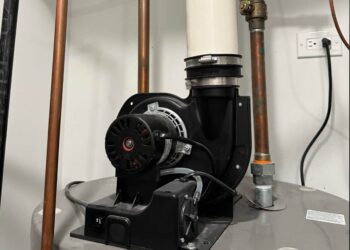Septic tank clogs are more common than you think, and they can cause a lot of headaches if not addressed properly. Preventing these clogs is crucial for maintaining a healthy and efficient septic system. In this blog post, we’ll walk you through essential steps to ensure your septic tank remains clog-free, saving you time, money, and stress.
Many homeowners experience septic tank issues simply because they don’t know how to prevent them. It’s our mission to equip you with the knowledge you need to keep your system running smoothly. Let’s dive into some practical tips and expert advice that will help you avoid septic tank clogs.
Understanding Your Septic System
How Does a Septic System Work?
Your septic system consists of a tank and a drain field. The tank collects wastewater from your home, where solids settle at the bottom and liquids flow to the drain field. Bacteria in the tank break down solid waste, but some remains and must be pumped out periodically.
Why Do Septic Tank Clogs Happen?
Clogs occur when too much solid waste accumulates in the tank or when inappropriate materials are flushed. Grease, oils, and non-biodegradable items can create blockages, preventing the system from working efficiently.
Importance of Regular Maintenance
Regular inspections and pumping are essential for a healthy septic system. Without proper maintenance, minor issues can escalate into major problems, resulting in costly repairs and unpleasant backups.
Mindful Flushing Habits
Only Flush Biodegradable Items
To prevent clogs, only flush toilet paper and human waste. Non-biodegradable items like wipes, feminine hygiene products, and dental floss can cause significant blockages.
Avoid Pouring Grease Down the Drain
Grease and oils can solidify in your pipes, creating stubborn clogs. Dispose of grease properly by letting it cool and throwing it in the trash.
Be Cautious with Chemical Cleaners
Harsh chemicals can kill beneficial bacteria in your septic tank, disrupting the breakdown of solid waste. Opt for septic-safe cleaners to protect your system.
Efficient Water Usage
Conserve Water to Reduce Strain
Excessive water usage can overwhelm your septic system. Conserve water by fixing leaks, using low-flow fixtures, and spreading out laundry loads throughout the week.
Install High-Efficiency Appliances
High-efficiency toilets, showerheads, and washing machines use less water, reducing the burden on your septic system. These upgrades can significantly extend the life of your system.
Monitor Water Usage Patterns
Pay attention to your household’s water usage patterns. Sudden increases in water use can indicate leaks or other issues that may affect your septic system.
Regular Inspections and Pumping
Schedule Routine Inspections
Have your septic system inspected by professionals every 1-3 years. Regular inspections can identify potential problems before they become severe.
Pump Your Tank Regularly
Pumping your septic tank every 3-5 years removes accumulated solids, preventing clogs and ensuring efficient operation. The frequency depends on tank size and household usage.
Hiring Professional Septic Tank Services
Professional septic tank services in Park City can help maintain your system. Experts have the tools and knowledge to perform thorough inspections and cleanings.
Protecting Your Drain Field
Avoid Parking or Building Over the Drain Field
Heavy vehicles and construction can compact the soil, damaging drain field pipes. Keep the area clear to ensure proper drainage and prevent costly repairs.
Plant Grass, Not Trees
Grass helps absorb excess moisture, while tree roots can infiltrate and damage pipes. Choose shallow-rooted plants to maintain the health of your drain field.
Divert Rainwater Away
Excess rainwater can saturate the drain field, reducing its effectiveness. Ensure gutters and downspouts direct water away from the area.
Educating Your Household
Inform Family Members About Proper Usage
Educate everyone in your household about what can and cannot be flushed or poured down the drain. Consistent practices among all members will help maintain a clog-free system.
Create a Maintenance Schedule
Develop a maintenance schedule that includes regular inspections, pumping, and mindful water usage. This proactive approach can prevent many common issues.
Stay Informed About Septic System Care
Continue learning about septic system care to stay ahead of potential problems. Resources like this blog and professional advice can keep you informed and prepared.
Benefits of Preventative Measures
Save Money on Repairs
Preventative measures can save you significant money on costly repairs and replacements. Regular maintenance is a small investment compared to the cost of fixing major issues.
Extend the Life of Your Septic System
Proper care and maintenance can extend the life of your septic system, ensuring it functions efficiently for years to come.
Peace of Mind
Knowing your septic system is well-maintained provides peace of mind. You can rest easy knowing you’re less likely to encounter unexpected problems.
Conclusion
Maintaining a healthy septic system requires regular attention and mindful practices. By understanding how your system works, conserving water, flushing only appropriate items, and scheduling regular inspections and pumping, you can prevent clogs and ensure a long-lasting, efficient system.





